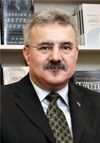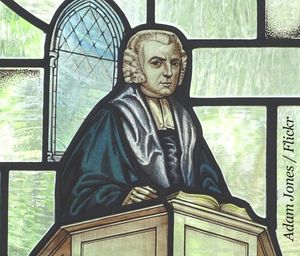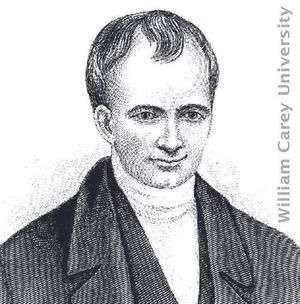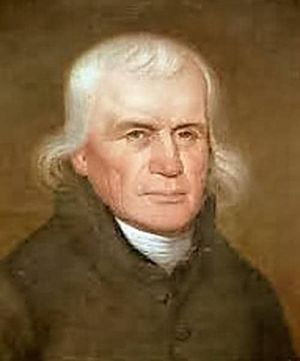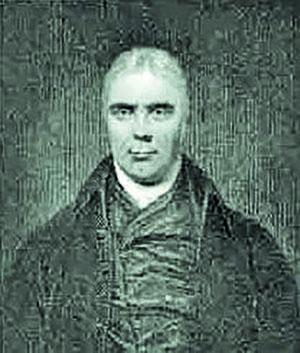The life and ministry of John Calvin – A quincentennial appreciation
John Calvin (1509-1564) was the most self-effacing of the Reformers. Only three times in his life, for instance, did he feel impelled to be autobiographical in works destined for public consumption – in his Reply to Sadoleto (1539), in the preface to his Commentary on the Psalms (1557), and in the words delivered on his deathbed to his fellow ministers of Geneva (28 April 1564).
Or consider the circumstances of his burial. After his death on 27 May 1564, it was discovered that he had given orders that he be buried without a tombstone. And four days after his death, the Geneva Register, the minute book of the pastors of the city, simply recorded: ‘Calvin went to God on May 27 of the present year’. No fanfare, just as the Reformer wished.
Shaping this longing for obscurity was Calvin’s sincere desire that God be glorified, and that he receive none of the attention. As we think, then, about Calvin’s life and ministry, we want to honour this driving motif of his life, and recognise that God’s glory and sovereignty was interwoven through the story of his mortal existence.
Early years
He was born on 10 July 1509 in Noyon, Picardy, in north-eastern France. His parents were Gerard and Jeanne Cauvin, whom Calvin’s earliest biographer Theodore Beza described as ‘widely respected and in comfortable circumstances’.
Calvin’s father intended young John for the priesthood. As he noted in his preface to his Commentary on the Book of Psalms: ‘When I was as yet a very little boy, my father had destined me for the study of theology’. Thus, in 1523 young Calvin was sent to Paris to study for a Bachelor of Arts degree which would eventually lead to the priesthood.
But in 1528 John’s life underwent a sudden change. His father, realising that more money was to be made out of law than religion (in Beza’s words, ‘he saw that the Law was a surer road to wealth and honour’), sent him to Orleans to study law.
Calvin describes this change of direction thus: ‘Afterwards, when he considered that the legal profession commonly raised those who followed it to wealth, this prospect induced him suddenly to change his purpose. Thus, it came to pass, that I was withdrawn from the study of philosophy, and was put to the study of law’.
This change of education and place of study is noteworthy for two reasons. First, Calvin’s legal training was to foster in him qualities of mind – clarity, precision and caution – which were never lost, and served him greatly as a Bible commentator and theologian in later years. Second, it was at the University of Orleans that he first came into contact with Reformation truth. One of his tutors was Melchior Wolmar, an evangelical, who began teaching Greek to Calvin and may have shared his faith with the younger scholar.
The learning of Greek was an important step, for it opened up for Calvin the riches of the New Testament. It is worth noting that a writer in the Roman Church could state around this time: ‘We must avoid [Greek] at all costs, for this language gives birth to heresies. Especially beware of the New Testament in Greek; it is a book full of thorns and prickles’!
Calvin’s conversion
The date of Calvin’s conversion is disputed among modern Reformation scholars. Traditionally it has been given as 1533 or early 1534. But Calvin scholar T. H. L. Parker has argued for an earlier date, 1529-1530, a dating followed by some recent scholars, among them James I. Packer.
My personal conviction leans toward the traditional dating, around 1533. But more important for our purposes is Calvin’s account of his conversion. Let us look at the longest version we have from his own hand – that contained in the preface to his Commentary on the Psalms:
‘To this pursuit [the study of law] I endeavoured faithfully to apply myself, in obedience to the will of my father; but God, by the secret guidance of his providence, at length gave a different direction to my course.
‘At first, since I was too obstinately devoted to the superstitions of Popery to be easily extricated from so profound an abyss of mire, God by a sudden conversion subdued and brought my mind to a teachable frame, which was more hardened in such matters than might have been expected from one at my early period of life.
‘Having thus received some taste and knowledge of true godliness, I was immediately inflamed with so intense a desire to make progress therein, that although I did not altogether leave off other studies, I yet pursued them with less ardour’.
No human instrument
This brief account contains four noteworthy things. First, prior to his conversion, Calvin was ‘obstinately devoted to the superstitions of Popery’. He was sunk deep in the mire of papal superstition. He compares his situation to that of a man who is sunk in a bog, from which rescue is only possible by an outside agency.
He had, in fact, been introduced to papal superstition at a very early age. His mother had taken her young son with her on various pilgrimages of devotion to local shrines and altars, to reverence relics and pray to God and the saints. So fast stuck was he in the mire of superstition that only God could deliver him.
Second, Calvin ascribes his rescue to God alone. There is no mention of any human instruments whom God used to bring Calvin to saving faith – men such as Wolmar; or his cousin Pierre Olivétain (1506-1538) who translated the New Testament into French; or the early Protestant martyr Étienne de la Forge, with whom Calvin lodged while in Paris.
Nor is there any mention of human writings that he must have read, works by Martin Luther (1483-1546) for instance. But this is typical of Calvin and the Reformed faith – an emphasis on the absolute sovereignty of God in salvation.
Commitment to the living God
Third, in the phrase ‘sudden conversion’, the word translated ‘sudden’ is subita, which in Latin can mean ‘unexpected’, and this is probably the better translation. In other words, Calvin’s conversion was not the result of any wish or intention on his part. One of Calvin’s natural characteristics was a resistance to change, as he indicates. But God broke into his life and produced a completely unexpected upheaval – one that changed his views of God and salvation and led him to embrace evangelical doctrine as the truth.
Fourth, Calvin states that he was ‘inspired by a taste of true religion’. This is important. There is a strong tradition that Calvin was cold and unemotional. But this account of his conversion indicates the exact opposite. He had an unusually ardent nature. Calvin’s conversion was no mere enlightenment – it was nothing less than an unreserved, wholehearted commitment to the living God.
This ardent commitment finds pictorial expression in Calvin’s crest or seal, which bears a heart upon an open, outstretched hand. The motto underneath reads: ‘My heart I give thee, Lord, eagerly and earnestly’.
Calvin comes to Geneva
In less than a year (Calvin records) people began to flock to him to be taught pure doctrine. But it was dangerous in France for any who embraced evangelical convictions. Forced to flee because of persecution, Calvin made his way in January 1535 to Basel, where, among others, Calvin’s cousin Pierre Olivétain was living.
It was there that Calvin set out to complete a systematic theology he had already begun, namely his Institutes of the Christian Religion, the first edition of which was published in 1536.
After a year or so at Basel, Calvin set out for Italy. He came to Ferrara, where he seems to have intended to settle down to a life of scholarship (he hoped to earn his living as a secretary to Princess Renée, the sister-in-law of Francis I, the King of France). But this did not work out and Calvin ended up back in France.
He only stayed six months, however, because the Edict of Lyons (31 May 1536) ‘allowed heretics to live in the kingdom on the condition that they were reconciled to Rome within six months’. Calvin headed for Strasbourg, where he hoped to carve out for himself the quiet life of a scholar. In his words, he longed for ‘some obscure corner’ in which he could have time for reflection and repose.
But the main road to Strasbourg was closed, so he took a different route – one that led by way of Geneva. He intended to stay there but one night.
Farel’s imprecation
Not long before Calvin’s arrival, Geneva had declared itself for the Reformation as a result of the preaching of Guillaume Farel (1489-1565), an indefatigable evangelist, and Pierre Viret (1511-1571).
Farel knew of Calvin, having read the first edition of the Institutes. He discerned that Calvin was the very man to help him in Geneva, especially since Farel was more of a pioneer and evangelist than pastor and teacher. So discovering that Calvin was in the city, he went to see him, and there ensued a fascinating discussion.
He sought to persuade Calvin to stay and help him. But Calvin was adamant that he was going to Strasbourg. Eventually (as Calvin later wrote), ‘finding that he gained nothing by entreaties … [Farel] proceeded to utter an imprecation that God would curse my retirement, and the tranquillity of the studies which I sought, if I should withdraw and refuse to give assistance’.
Calvin was so stricken with terror that he felt ‘as if God had from heaven laid his mighty hand upon me to arrest me’. So Calvin stayed in Geneva. It was certainly not the normal way God calls men to pastoral ministry!
Ministry and marriage
Calvin’s ministry in Geneva can be divided into two parts. The first lasted from 1536-1538, during which Calvin’s ministry was attacked by Anabaptists and plagued by various dissensions – eventually ending in his being expelled from the city in 1538 along with Farel. He lived in exile in Strasbourg for three years.
During these three years away from Geneva, 1538 to 1541, Calvin met and married Idelette de Bure (c.1499-1549), a widow with two children. Her first husband, Jean Stordeur (d.1540), had been an Anabaptist leader, who through discussing theology with Calvin had become convinced of the Reformed position.
Calvin’s letters say little about his wife during their eight and a half years of marriage (she died March 1549 having suffered ill health for a number of years) but now and then a remark shows how close they were to each another.
For example, during the spring of 1541 before he returned to Geneva, Calvin was with his wife in Strasbourg. A plague was raging in the city and Calvin decided to stay but send his wife away for her own safety. He wrote to Farel: ‘day and night my wife has been constantly in my thoughts, in need of advice now that she is separated from her husband’.
They had no children who survived infancy. After the death of one son, Jacques, soon after birth in 1542, Calvin wrote to Viret: ‘The Lord has certainly inflicted a severe and bitter wound in the death of our baby son. But he is himself a Father and knows best what is good for his children’.
Calvin was recalled to Geneva in 1541 and remained there till his death twenty-three years later. Dominating this second phase of his ministry at Geneva were two things in particular. First, there was the exposition of the Scriptures through word and ink. Second, there was the evangelisation of France.
The latter he sought to further by providing potential pastors and missionaries with a programme of theological education and keeping in regular touch with those who were sent to France to preach the gospel.
Calvin’s preaching
Calvin saw his life work in Geneva primarily as ‘proclaiming the Word of God’ and ‘instructing believers in wholesome doctrine’. He was, of course, involved in pastoral work, but the centre of his ministry was gospel preaching. By this means, Calvin says time and again, God reveals himself in judgement and mercy, turning hearts to obedience, confirming the faith of believers, and building up and purifying the church.
Until 1549 he preached twice each Sunday – at one of two morning services and at three o’clock in the afternoon. He also spoke three times or so during the week. Calvin’s method was true expository, the method of Huldreich Zwingli and some of the church fathers, such as John Chrysostom.
Not for him a sermon based on a single text or isolated passage. Rather, he preached steadily through book after book of the Bible. On Sundays he always took the New Testament, except for a few Psalms on Sunday afternoons. During the week, it was nearly always the Old Testament.
He began at the beginning of a book and expounded it passage by passage, clause by clause, week after week, until he came to the end. As Calvin scholar T. H. L. Parker has noted: ‘Those in Geneva who listened Sunday after Sunday, day after day, and did not shut their ears … received a training in Christianity such as had been given to few congregations in Europe since the days of the fathers’.
We owe Calvin’s extant sermons to the labours of a French evangelical named Denis Raguenier, who (following an elaborate system of stenography devised by the pastors of the congregation) copied down all that Calvin preached.
Initially the sermons were copied into folio volumes and entrusted to the care of the deacons for anyone who wanted to read them. Later, some of them were published and many were translated, especially into English. A copy of Calvin’s sermons on Ephesians was found at the bedside of John Knox after the latter’s death in 1572.
As a result of Raguenier’s labours, there are around 2040 of Calvin’s sermons in manuscript or in print. An additional 263 were preserved through other means. In them we hear the authentic tones of the Reformer, speaking a plain, colloquial but metropolitan French, and embracing the whole counsel of God as well as all the issues of his day.
Calvin and the Scriptures
What lay at the root of such monumental preaching? Well, first, Calvin had an overwhelming passion to proclaim the Word of God. He could have said with the apostle Paul: ‘I am constrained to preach the gospel’ (1 Corinthians 9:16). What Calvin once said about preachers in general was true of himself in particular – ‘God’s servants ought to speak from the inmost affections of their heart’.
Then, there was his view of Scripture. When he speaks about the nature of Scripture, his position is unambiguous. The Scriptures, he says, are ‘the pure Word of God’, ‘free from every stain or defect’, ‘the certain and unerring rule’. For Calvin the Bible is an inerrant and infallible book.
The Bible was the means whereby God revealed his will to men. Unlike all other texts, this alone is a sure and certain guide for the believer’s life and thinking. He thus was faithful to the Reformation’s rediscovery of that central principle: sola scriptura. He assumed that Scripture, rightly interpreted, will not be found to make false assertions. This was the basic presupposition of all his exegesis and preaching.
Finally, for Calvin, as for the other Reformers, hearing is the key sense of the Christian man and woman. Genuine ‘faith’, he once said, ‘cannot flow from a naked experience of things, but must have its origin in the Word of God’.
Mediaeval Roman Catholicism had majored on symbols and images as the central means of teaching. The Reformation, coming hard on the heels of the invention of the printing press, turned back to the biblical emphasis on words, both spoken and written, as the primary vehicle for cultivating faith and spirituality.
Geneva as a missionary centre
Geneva was not a large city. During Calvin’s lifetime it reached a peak population of slightly more than 21,000 by 1560, of whom many were religious refugees. Nevertheless, it became the missionary centre of Europe in this period of the Reformation.
Calvin sought to harness the energies and gifts of many of the religious refugees so as to make Geneva central to the expansion of Reformation thought and piety throughout Europe. This meant training and preparing many of these refugees to go back to their native lands as evangelists and reformers.
Understandably, Calvin was vitally concerned about the evangelisation of his native land, France. It has been estimated that by 1562 some 2150 congregations had been established in France with around two million members, many of them converted through the witness of men trained in Geneva.
But Calvin was concerned for not only France but also for the reformation of the church in places like Scotland, England, Spain, Poland, Hungary and the Netherlands.
To further the work of Reformation evangelism, there was also need for Christian literature and the Scriptures. In fact, by the time Calvin died, his interest in Christian publishing had given rise to 34 printing-houses in Geneva, with an annual printing capacity of around 300,000 books. This included Bibles in various European languages, like the Geneva Bible, the bedrock of early English Puritanism.
Geneva’s missionary vision for Europe thus had a deep impact on the continent. Little wonder Calvin could write: ‘When I consider how very important this corner [i.e. Geneva] is for the propagation of the kingdom of Christ, I have good reason to be anxious that it should be carefully watched over’.
And we, though living five hundred years later, are thankful to God that he did preserve Geneva in Calvin’s day – for it was through the Puritans, the children of Calvin’s Reformation, that the biblical faith has come down to us.
Michael A. G. Haykin

